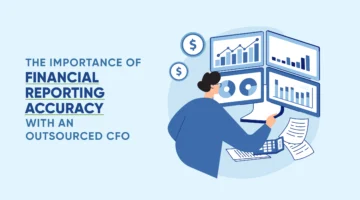Does Your Inventory Need a Clean Up?
What is Inventory Clean Up?
It is extremely important to ensure that your inventory and asset records align correctly. Over the course of a year, your stated inventory and fixed asset levels on the books may differ from what is truly available. This is especially likely if you use a manual process to track your inventory, rather than an automated inventory management software or system. Inventory clean-up is something that is often overlooked within companies, even though it serves an important purpose.
Fixed assets, which are large investments that you plan to keep on your balance sheet for years, can be problematic. Fixed assets that you have on your books but don’t appear in real life due to loss or theft are called ghost assets. Ghost assets interfere with workflow and can cause an audit from the IRS since your reported worth is higher than it should be.
It is important to take the time to audit and account for all your assets at the end of the year, so your filings are truthful to help you both systematically and legally.
Steps To Take For An Inventory Clean-Up
There are a few general steps that can be done in order to make sure that your inventory stays up to date and is cleaned up:
- Verify and rebuild your live QuickBooks file to be sure you are working with clean data.
- Run Balance sheet and Inventory Valuation Summaries, and No Item reports.
- If your No Item report is not at 0, there should be a journal entry. The negative and inactive inventory should be removed to compare reports to determine If there are still inconsistencies.
A few questions that you should ask yourself:
- Do I prioritize the best sellers? The most popular and fast-moving stock should be the easiest to access and sell. It should be restocked the most frequently to keep up with fulfillment times.
- When was my last inventory audit?
In order to get the bigger picture, account payables and receivables should not be the only items being tracked. Inventory loss or shrinkage can happen to any business no matter the size or industry. Inventory shrinkage can happen due to employee theft, damaged items, shipping errors, product expiration and more. Regular inventory audits should be conducted to reduce these problems. - Is everything clearly signed and organized?
In case of employee internal changes or absences, it is important that your inventory processes are mapped out and made clear for all employees. - Do I process damages daily?
There should be a smooth process of damages to ensure that valuable time and money is not wasted on costly returns. - How secure is my inventory?
Valuable inventory product should be not easily accessible to all. Your products should be protected, and security systems should be changed often. Inventory systems passwords should be changed regularly. - Is my inventory system software up to date?
An outdated inventory software can lead to you missing out on important updates such as tax codes, shipping fees and times, and customer communications. Old software essentially can slow all processes down. Just as your account systems should be up to date, so should your inventory systems. In the end, it will only benefit you and your business.
NOW CFO Can Help with Your Inventory
We have vast experience in job costing, inventory analysis, data gathering, lower of cost or market analysis and multiple inventory systems and methodologies. Our consultants will make recommendations of the operational accounting function and system improvements.
Get Your Free Consultation
Gain Financial Visibility Into Your Business
We provide outsourced CFO, fractional CFO, and temporary CFO, Controller, Internal Audit, and operational Accounting services that suit the needs of your business.
- Hourly Rates
- No Hidden Fees
- No Long Term Requirements
NOW CFO provides the highest level of expertise in finance and operational accounting to accelerate results and achieve strategic objectives for sustainable growth and success.
After completing the form, a NOW CFO Account Executive will reach out and learn more about your needs so that we can pair you with the right Partner.
Learn More: Do You Have Too Much Inventory on Hand?



